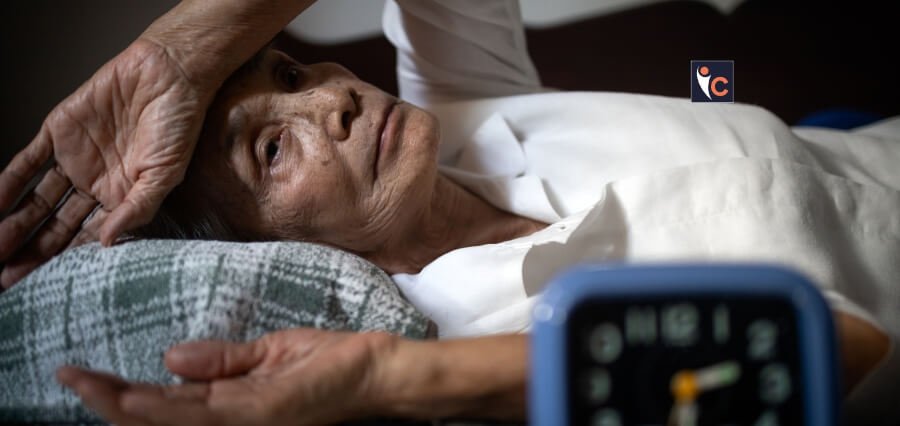A recent study examining the relationship between sleep patterns and age-related cognitive changes in older adults was published in the journal JAMA Network Open.
Cognitive decline is preceded by amyloid deposition, which manifests ≥15 years prior to cognitive impairment. Targeting pathogenic mechanisms at an early stage of the disease’s progression may prove to be the most effective treatment strategy. Decades before dementia manifests, therapy and prevention efforts can be directed towards identifying the factors that precede cognitive and functional decline.
Dementia has been linked to sleep disturbances, but it is unclear how long-term changes in sleep impact the development of cognitive impairments. There is a correlation between a higher pathological load of Alzheimer’s disease and short sleep duration and poor quality sleep. Research showing a connection between a diagnosis of dementia and persistent sleep disturbance are limited by simple sleep metrics.
In the current study, researchers looked into the possibility of a relationship between older adults’ cognitive impairment and self-reported sleep duration patterns over time.
The group conducted a longitudinal analysis of data from the Seattle Longitudinal Study (SLS), which evaluated older adults’ self-reported sleep durations from 1993 to 2012 and their cognitive function from 1997 to 2020. From 1956 to 2020, the team enrolled SLS participants from the Group Health Cooperative (GHC) of Puget Sound and the Health Maintenance Organisation (HMO) of Washington. Only those who submitted comprehensive demographic information, underwent neuropsychologic testing, and completed the Health Behaviour Questionnaire (HBQ) were included in the study.
Apolipoprotein E ε4 (APOE*E4) allele carrier status, race, ethnicity, sex (male or female), and educational attainment were among the demographic variables that subjects self-reported. From 1993 to 2012, the participants completed the HBQ five times, and from 1997 to 2019, they had neuropsychological evaluations every five to seven years. The study’s conclusion was cognitive impairment, as indicated by results on the Mini-Mental State Examination (MMSE, scores below 26) and the Mattis Dementia Rating Scale (DRS, scores below 129) that fell below thresholds. Additionally, the Centre for Epidemiologic Studies-Depression Scale (CES-D) was a component of the SLS neuropsychological battery.
The median amount of sleep each night over the previous week was self-reported, and it was assessed longitudinally at multiple intervals. The researchers assessed sleep phenotypes, including median sleep duration, variations in sleep duration, and variability in sleep. Short sleep was defined as less than seven hours, medium sleep as seven hours, and long sleep as more than seven hours. They analysed the data between September 2020 and May 2023 and calculated the hazard ratios (HRs) using Cox proportional-type hazard regression modelling.
Of the SLS participants who were initially enrolled, 278 were excluded due to insufficient demographic information, particularly regarding APOE genotype; only 1,104 who completed neuropsychological assessments and the HBQ were included in the study. Thus, the study population consisted of 826 people [mean age = 76 years; 57% (n = 468) women; 26% (n = 217) APOE*E4 carriers].
Greater variability in sleep patterns (HR, 3.1) and short sleeper status (HR, 3.7) were found to be significantly correlated with cognitive impairment, according to Cox proportional regression modelling (concordance, 0.8). The team found that as people aged, there was a greater cognitive decline. At the final assessment, 44 out of 614 individuals (or 7% of the total) had a cognitive decline; older individuals had a greater cognitive decline.
The presence of ≥1.0 APOE*E4 copies (HR, 2.1) and educational attainment (HR, 1.2) were found to be significantly associated with cognitive impairment. The results of modelling with the impact of depression revealed a significant relationship between the risk of cognitive decline and the APOE*E4 carrier status (HR, 2.1) and educational attainment (HR, 1.1). The association between age-associated cognitive decline and short sleepers (HR, 2.8) and rising variability in sleep patterns (HR, 2.2) was significant.
Read More: https://insightscare.in/





